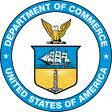United States Department of Commerce

United States Department of Commerce: Staff Publications
Date of this Version
2012
Citation
Published in Journal of Environmental Management 105 (2012) 30-43. DOI:10.1016/j.jenvman.2012.03.001
Abstract
Progress on recovery plans to conserve endangered species is often blocked due to the lack of an effective framework that technical experts and other knowledgeable stakeholders can use to examine areas of agreement or disagreement about the anticipated effects of management actions. Multi-party, multi-interest resource management deliberations, although increasingly common, are difficult in the context of recovery planning due to the range of potentially affected environmental, economic, and social concerns. These deliberations are further complicated by frequent disagreements among technical experts about how to identify and address various sources of biological uncertainty. We describe the development of a decision-aiding framework as part of an inter-agency plan to assist recovery of endangered Gulf of Maine Atlantic salmon (Salmo salar), using a structured decision making approach that encouraged constructive deliberations based on rigorous analysis. Results are summarized in terms of developing an explicit set of management objectives, clarifying and prioritizing hypotheses concerning barriers to recovery, comparing alternative management initiatives in light of biological uncertainty, and incorporating resource constraints to generate preferred sets of actions. Overall, the use of a structured approach to making recovery decisions improved inter-agency cooperation and facilitated dialogue, understanding, and agreement among participating experts. It also helped to create a defensible basis for further internal discussions as well as for communicating with external stakeholders, including resource users and political decision makers.

